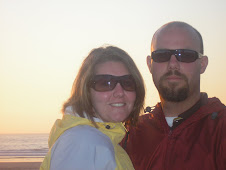This was the homily that Pastor Shelley gave on Sunday. I mentioned this a couple days ago. Not only was Christian glued to her actions, and the words she was saying, but I too was taken in by her words. It reconfirmed for me the way I feel about the people surrounding me. I don't believe that one can get something for nothing. I don't. I also believe that there are people out there who abuse the system, and that frustrates me.
However, having listened and watched P.Shelley give this sermon, I am convinced that those very people are the ones who need my prayers the most. As well as the people who condemn them.
So picture if you will while you read the sermon, P.Shelley did not stand behind the pulpit, she didn't talk 'at' us, she stood in the center, she used her body and she acted out some of the parts. It captured our attention, and it served the very purpose--at least for Christian and I--that it was intended to.
Enjoy.
Ernest Gordon was a Scottish soldier who fought in World War 2. In 1942, Gordon was captured and marched to a prison camp by the river Kwai. If, as General Sherman said, war is hell, life in a war camp is worse. The prisoners were forced to work for hours in scorching temperatures, chopping their way through the tangled Southeast Asian jungle. Anyone who couldn’t keep up was brutally punished. Inside the walls of the camp, the men were tortured and humiliated. Treated like animals, the men themselves became like beasts trying to survive. They stole and lied. They reverted to the basest of instincts: An eye for an eye; every man for himself. Their miserable existence was defined by hatred and the thirst for revenge.
One day, the prisoners were working on constructing the massive railroad bridge over the river. A guard standing watch did a quick count of the men, and of the tools. One shovel was missing. The guard called the men into line. He demanded that the thief step forward. No one confessed. “Then I will kill all of you,” the guard threatened. He raised his gun and pointed it at the first man in line. Gordon was standing second. He watched the guard start to squeeze the trigger. “I was staring in the face of sure and certain death,” he wrote. But suddenly another prisoner stepped forward, his head bowed low. “I took the shovel,” he said quietly. In two quick steps, the guard was there, beating the man with his hands and his gun. The prisoners stood and watched, their stomachs churning in horror and relief. When the thief was dead, the guard dismissed the rest of the captives back to their work. The man’s body was left where it fell.
That evening, when the work crew made the inventory of the tools, they discovered that a mistake had been made. No shovel was missing. No one was guilty.
The prisoners realized that the soldier had sacrificed himself to save his comrades. An innocent man had exchanged his life for theirs. It was the greatest gift he could give.
From that day forward, Gordon wrote, “Death was still with us. But we were slowly freed from its destructive grip.” Life in the camp began to change for the soldiers. Instead of ‘every man for himself,’ they began to look out for each other. They started to talk less about getting even, and more about getting home. They shared their rations so the weakest could grow stronger. When one man lagged behind, the others made up the difference. They began to pray together. Where bitterness and hatred once festered, mercy and community among the men began to grow. Ernest Gordon was still a prisoner when the camp was liberated almost two years later. The moment for revenge finally arrived. But the prisoners insisted the cruel guards be treated not with vengeance, but with kindness. “Why?” their rescuers asked. “Don’t they deserve to suffer as you have?” Because, Gordon wrote, when someone has given his life for yours, it changes you.
As we begin this Holy Week, we are the prisoners. We are held captive by our sins. We revert to the basest of instincts. We treat one another with judgment, hypocrisy and contempt. Our humanity condemns us to a sure and certain death. We are guilty. But then, an innocent person steps forward. Without a word, he bows low to accept the punishment meant for us. As we stand and watch, he gives up his life – his life, for ours. By his wounds we are healed; by his brokenness we are made whole. It is the greatest gift he can give.
Subscribe to:
Post Comments (Atom)





1 comment:
This is beautiful. Thank you for sharing.
Post a Comment